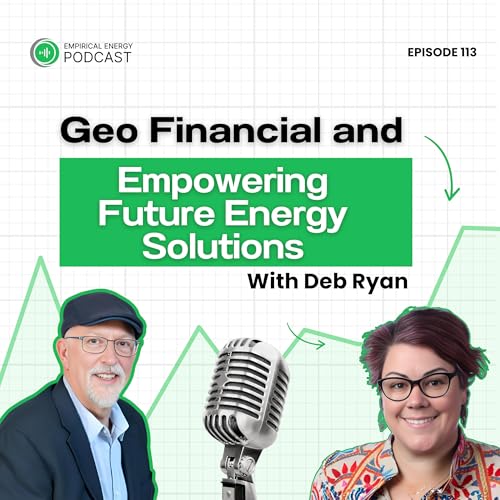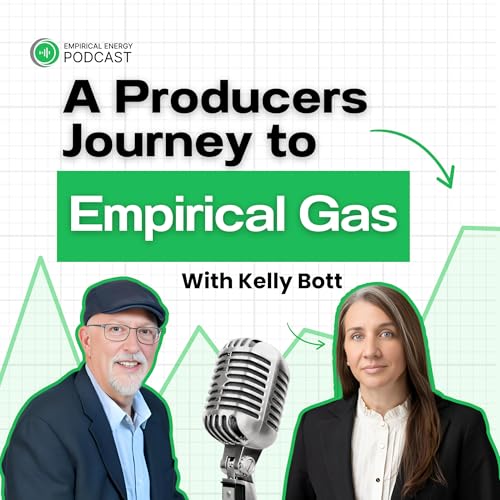Welcome to the Empirical Energy Podcast, where host Mark Smith sits down with Mehdi, author of Enterprise Gen AI for Energy Executives, to uncover how Generative AI, blockchain, and verified data are transforming the global energy industry.
This episode dives deep into real-world AI adoption — from C-suite strategy and data management to cultural transformation and workforce adaptation. Learn how energy leaders can identify the right AI use cases, navigate the “build vs. buy” debate, and prepare for the era of Artificial General Intelligence (AGI).
If you’re an energy executive, innovator, or tech strategist, this episode offers an unfiltered roadmap to the future of verified, intelligent energy.
Timestamps
00:00 – Welcome to the Empirical Energy Podcast: The verified energy revolution
00:33 – Meet your host, Mark Smith
00:45 – Introducing Mehdi and his book Enterprise Gen AI for Energy Executives
01:08 – The inspiration behind writing the book
01:41 – Bridging the gap between technical experts and executives
02:12 – The need for continuous learning in AI and energy
02:33 – Mehdi’s background: From robotics to oil to data-driven strategy
03:18 – How Generative AI is transforming business operations
03:39 – Why AI is no longer a luxury — it’s essential
04:27 – What executives will gain from Mehdi’s book
05:11 – Identifying the most valuable AI use cases
06:12 – How to prioritize, budget, and assess AI initiatives
07:11 – The “Build vs. Buy” dilemma for modern organizations
08:15 – Vendor partnerships, data security, and compliance challenges
09:40 – The reality of implementing AI in the energy sector
10:01 – Lessons from real projects and the “dumb tax” of innovation
10:38 – Prompt engineering, fine-tuning, and agent-based AI
11:30 – Managing fear and resistance to AI adoption
12:17 – Building a culture of learning and adaptation
13:04 – Behind the scenes: Mark and Mehdi’s “book club” collaboration
13:35 – Upcoming Energy AI Conference — join the movement
14:17 – The future: From Generative AI to AGI
15:31 – New jobs, new leadership, and managing intelligent systems
16:13 – How AI will reshape energy companies in the next 3 years
17:21 – Why every organization must embrace AI now
17:44 – Closing thoughts and gratitude
18:09 – How you can support and stay connected
🔔 Join the Movement
If this conversation sparked new ideas for you:
✅ Subscribe to the Empirical Energy Podcast
💬 Comment your biggest takeaway from this episode
📢 Share this video with your team or peers in the energy space
 25 分
25 分 30 分
30 分 42 分
42 分 2025/10/2817 分
2025/10/2817 分 19 分
19 分 18 分
18 分 24 分
24 分 40 分
40 分
